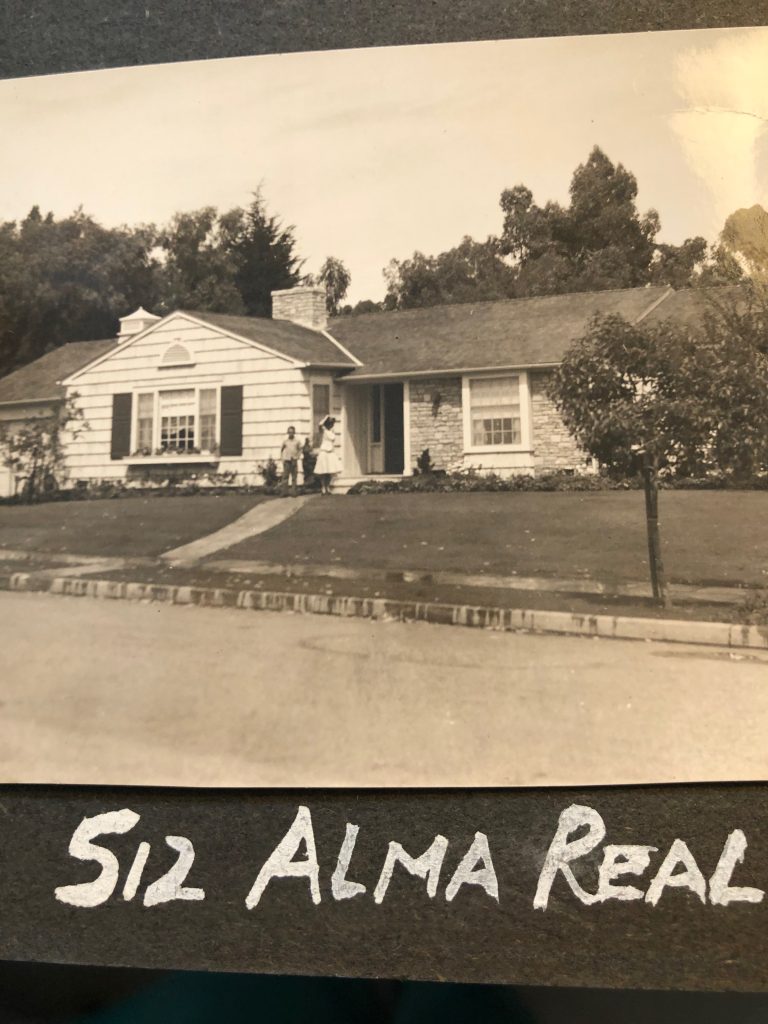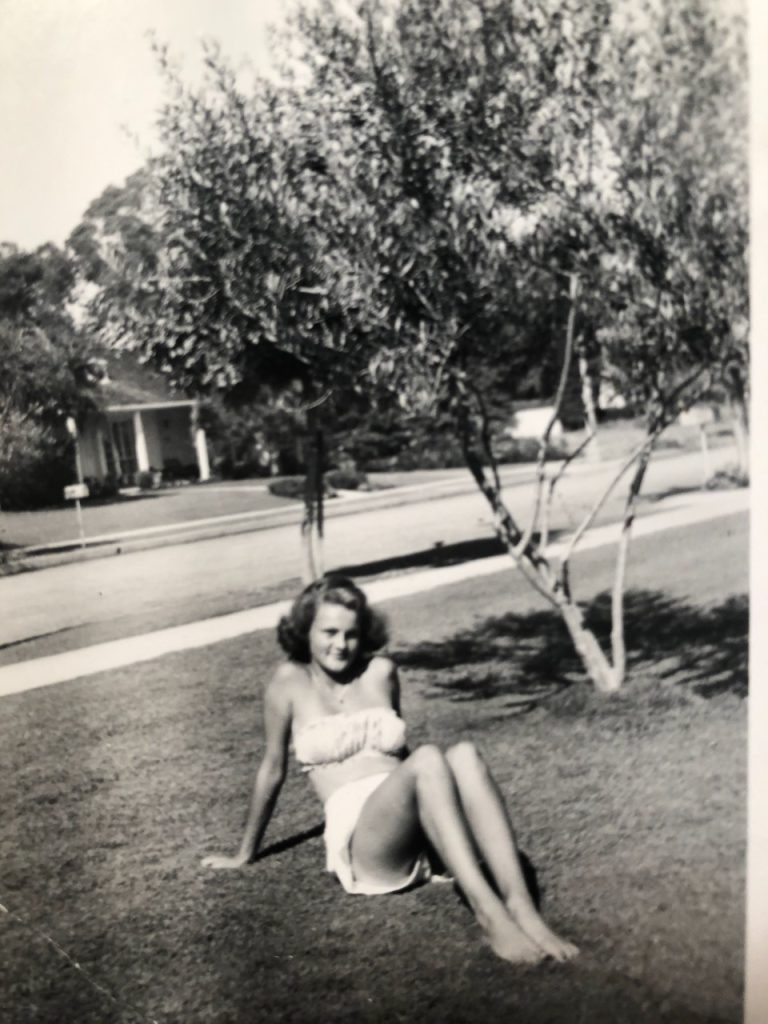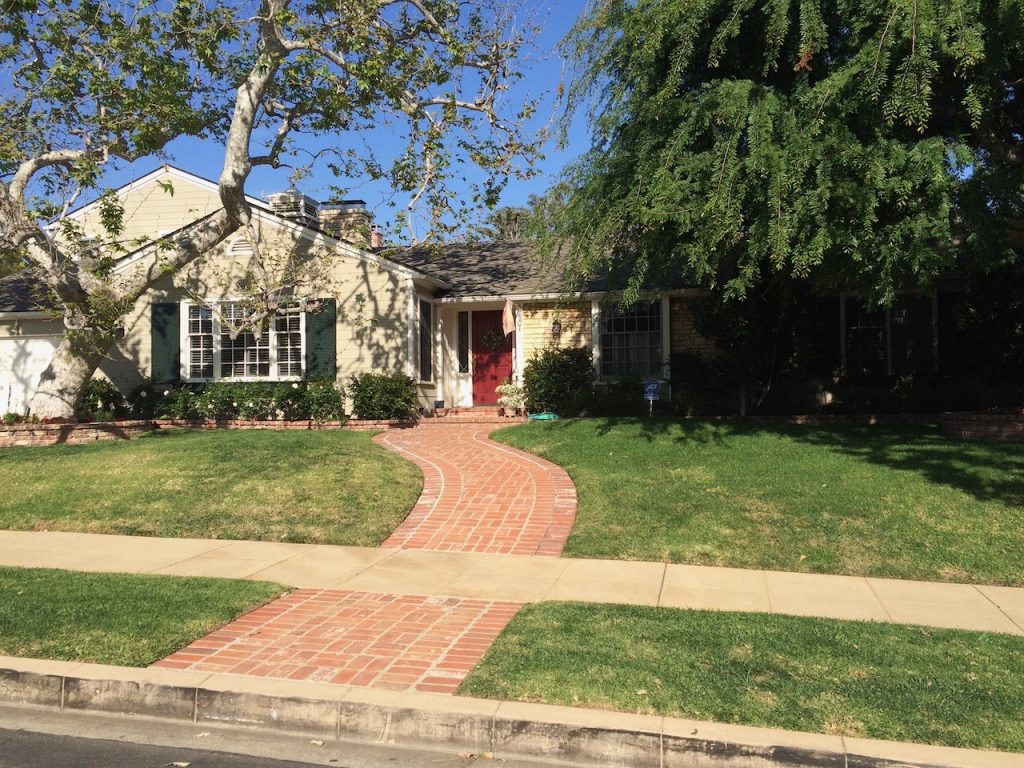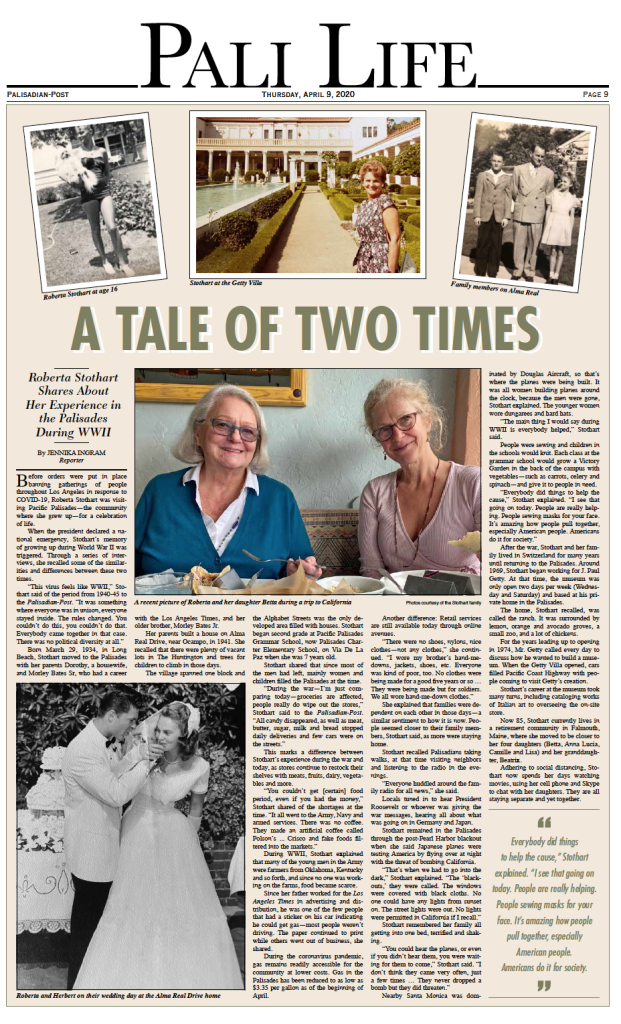As a person now living in Maine, but originally from Southern California, I felt the urge to share a little bit about the effects that my family and I are feeling about the wildfires currently taking place in Los Angeles.

There is complex grief for those of who moved away and are not “directly” impacted by the Los Angeles fires. We struggle with feelings of guilt because we are not living there, and yet our sense of loss is profound. The passage of time does not erase the deep connection we feel to place. As my sister Anna, a psychologist now in Cambridge, Mass., expressed so movingly, we are wrapped up in our formative experiences and we feel devastation at the loss of nature and also of historical (concrete) structures, the structures that hold our memories. The passage of time does not erase the deep connections we feel to people and place.
As I write, my eldest sister Lisa has evacuated to Laguna Beach, less for the risk to her home as from the harmful effects of toxic smoke.
It is an understatement to say that my mother, sisters and I are reeling from the news coming from Los Angeles, where my maternal and paternal grandparents settled in the late 19th and early 20th centuries. The Pacific Palisades and Brentwood area are where both of my parents were raised, so you can imagine the sorrow we are feeling as we see the stark evidence – and excruciating-to-watch aerial footage – revealing our town quite literally scorched off the face of the planet.

My mom, born in 1934, grew up skipping the sidewalks of the Pacific Palisades and she often reminisces about her good fortune to be raised in such a beautiful town, overflowing with flowers, trees, kind people, and cooling breezes from the Pacific Ocean. She and my father raised four girls in Malibu, but eventually my dad moved back to the Pacific Palisades to continue his teaching career, and mom moved back later, continuing her career at the J Paul Getty Museum.
In 1940, my maternal grandparents bought a plot of land for $300 in the heart of the Pacific Palisades, at 512 Alma Real Drive. They built the home where my mother and her brother grew up, where my mom made countless friends, celebrated her graduation day, wedding day, Thanksgiving days, Christmas days, and so much more. Today, we await confirmation but are quite certain that her childhood home is gone.
Only last September, my sister, my mom and I were in the Pacific Palisades enjoying a beautiful late summer dinner in the heart of that special village. As is our custom, we drove past the library down Alma Real to the house, the old sycamore still standing outside, and the structure barely changed from its original state.

But today, everything has changed.
The pain of this kind of violent loss is extremely difficult to articulate, but I can say for sure that it highlights the transient, fleeting, and even wondrous nature of our lives. What we love and what we think will always be there is suddenly and permanently gone. Even an entire town.
My sister Anna has been studying and recently published an article about the significance of the human-ecosystem relationship. Her work, which explores the impacts of climate change within the human-landscape bond, is deeply resonant today as we look out over the ravaged Los Angeles landscape.
In her recent paper, Anna writes about Shifting Baseline Syndrome (SBS), or environmental generational amnesia, a syndrome coined by Daniel Pauly in 1995. She writes: “Shifting Baseline entails an increased tolerance and acceptance of an increasingly depleted state of the natural environment due to a lack of experience, memory and/or knowledge of its past condition. In this sense, what we regard as a healthy environment now, past generations would consider to be degraded, and what we think of as degraded now, the next generation will consider healthy or ‘normal.’ Today’s natural landscape is not yesterday’s natural landscape. Without memory, knowledge, or experience of past environmental conditions, current generations cannot perceive how much their environment has changed because they are comparing it to their own ‘normal’ baseline and not to historic baselines. Shifting baselines affect our perceptions of the state of the natural world, it changes our relationship with our environment and our expectations of what is worth protecting.”
As I think about how to end sum this all up, I want to express love to those in my circle of friends and family. I know that I can be a distant and perplexing person, but it is not for lack of caring. I am here, watching, living, trying to be the best person I can be, often failing.
If I’ve learned anything this week it’s that connection to place, while different, is perhaps as profoundly meaningful as connection to people. Place gives meaning. Place is at the root of our story. When a place is suddenly gone, it’s disorienting, and the pain is strangely, quietly wrenching.

